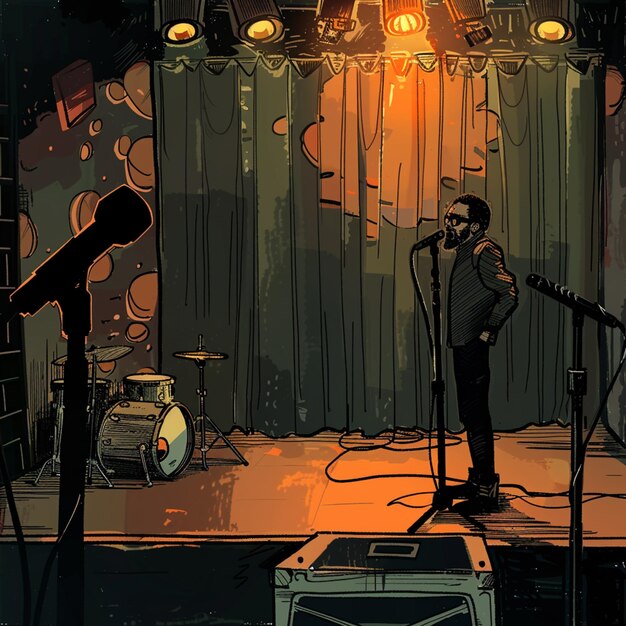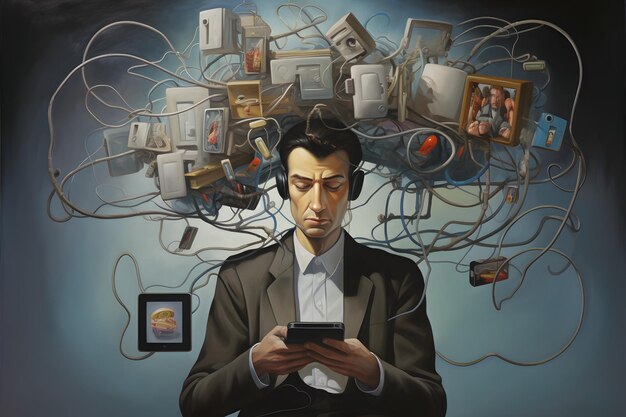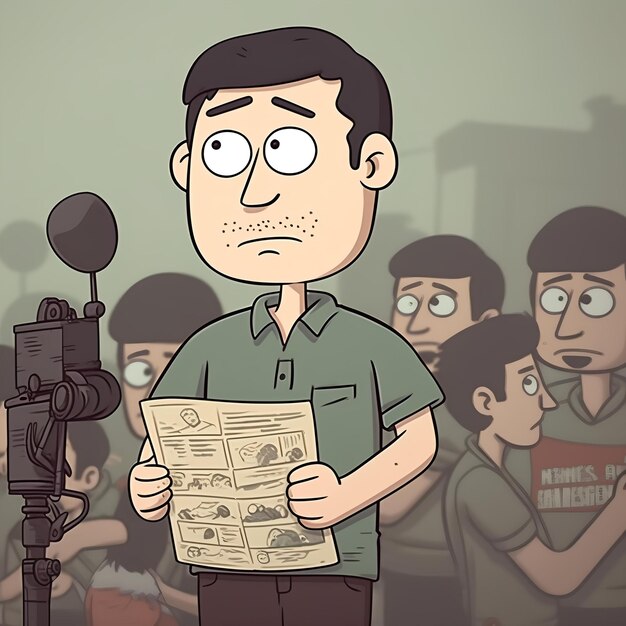Quick Read
“To Go Viral They Make Up Bullshit Without Respect for a Tragedy”: Fedez’s Indignant Rant Against the Media After the Ozieri Concert
On the fateful night of August 28, 2021, in the beautiful town of Ozieri, Italy, rapper Fedez took the stage for what was supposed to be an unforgettable concert experience. However, the events that transpired that evening would forever tarnish the memory of this musical occasion. In the wake of the tragic incident, Fedez took to social media to express his indignation and disgust towards the sensationalist reporting of the media.
“The Media’s Role in Twisting the Truth”
Fedez‘s anger was fueled by what he perceived as a blatant disregard for the truth and sensitivity in the aftermath of the tragedy. He lamented that in their quest to go viral, the media had fabricated stories and spread misinformation about what had transpired during the concert.
“Creating a False Narrative”
“They make up bullshit without any respect for a tragedy. They twist the story, create a false narrative, and blame me for something that I had no control over,”
Fedez wrote in an Instagram post. He went on to describe how the media had distorted the facts, turning a simple incident into a major scandal.
“The Victims of Sensationalism”
Fedez‘s message was a poignant reminder that in the pursuit of clicks and views, it’s often the victims who suffer most. He urged his followers to be wary of the information they consume and to hold the media accountable for their irresponsible reporting.
“A Call to Action”
Fedez‘s impassioned rant served as a call to action for those who value truth and integrity in journalism. His words resonated with many, sparking a much-needed conversation about the role of the media and the responsibility we have as consumers to seek out accurate information.
“A Lesson Learned”
Fedez‘s experience was a sobering reminder that in times of tragedy, the last thing we need is for the media to add fuel to the fire. It’s crucial that we as a society hold those who report on our behalf to the highest standards of truth and accuracy.
“A Message of Hope”
Fedez‘s words also served as a message of hope and resilience. Despite the media’s attempts to tarnish the memory of that night in Ozieri, the music and the community remained strong.
“The Power of Music”
“Music is a powerful tool that can heal, bring people together, and create positive change. Let’s not let the media take that away from us,”
Fedez concluded in his Instagram post.
“A Call for Change”
Fedez’s rant marked a turning point in the conversation about media ethics and responsibility. It was a call for change, a plea for truth, and a reminder that we all have a role to play in shaping the narrative.
“The Future of Journalism”
Fedez‘s message was a reminder that the future of journalism depends on our ability to hold the media accountable and to demand truth, accuracy, and respect for the victims of tragedy.
“The Power is in Our Hands”
“We have the power to make a difference. Let’s use it wisely,”
Fedez urged his followers, leaving us with a powerful message that continues to resonate in the world of media and beyond.

Context: In the vibrant world of Italian music, one tragic incident left an indelible mark on the scene. The
link
in 2019 became the talk of the town when a tragic incident occurred, resulting in multiple fatalities. The media, as is their wont, swarmed the scene, reporting every minute detail, leaving no stone unturned.
Introduction: Amidst this chaos emerged a figure whose response to the media’s coverage was as compelling as the tragedy itself. He is none other than
link
, the Italian rapper who has been making waves in the music industry. With a reputation for his raw, unfiltered lyrics and his ability to tackle societal issues through music, Fedez has always been known to speak his mind.
Focus: This article will delve deeper into the reaction of this bold artist to the media’s coverage of the Ozieri tragedy. We will
bold
italicize significant parts of his statements, and use headings
h5
h6
to highlight key aspects of his response.
Background
Description of the Incident at the Ozieri Concert:
On a chilly autumn evening in October 2015, thousands of fans gathered at the Ozieri Amphitheater in Sardinia, Italy, eagerly awaiting the performance of famed Italian rapper, **Fedez**. The atmosphere was electric as the sun began to set over the picturesque venue. However, the excitement would soon turn to tragedy. As Fedez took the stage, a sudden pyrotechnic malfunction caused a massive explosion of sparks and flames that engulfed the crowd. Screams echoed through the night as panicked concertgoers attempted to flee the scene. The aftermath was chaotic: injured fans were rushed to hospitals, and the families of those who did not survive were left devastated.
Overview of the Media’s Initial Reaction to the Tragedy and Their Reporting:
The news of the tragic event at the Ozieri Amphitheater quickly spread, with the Italian media reporting in detail on every development. The initial reports focused on the number of injured and dead, with updates following as more information became available. Many prominent Italian newspapers and television stations devoted extensive coverage to the tragedy, providing live reports from the scene and interviews with witnesses, survivors, and emergency responders.
Fedez’s History with the Media: Past Controversies and Collaborations:
Fedez, born Alessio Mackorin in 1985, had long been a controversial figure in the Italian media. Known for his provocative lyrics and outspoken personality, he had been the subject of numerous articles and investigations throughout his career. Some critics accused him of glorifying violence and promoting a negative message to young fans. However, Fedez also had collaborations with reputable artists and charitable causes, making his relationship with the media a complex one.
Controversial Lyrics:
Fedez’s music had often stirred controversy with explicit lyrics that some felt were violent or misogynistic. In 2013, for example, his song “Bravo Bravissimo” was criticized by the Italian Women’s Association (Associazione Donne in Italia) for its objectifying and degrading lyrics towards women.
Charitable Collaborations:
Despite his controversial image, Fedez had also made efforts to use his platform for good. In 2014, he collaborated with the Italian Red Cross on the charity single “Tutti Pazzi (Insani),” which raised funds for mental health awareness. He has also supported various social and humanitarian causes throughout his career.
Media Reactions to Fedez’s Tragedy:
The media’s reaction to the Ozieri tragedy was a mixed bag, with some outlets focusing on Fedez’s past controversies while others highlighted his charitable endeavors. Many questioned whether the explosion was a consequence of the rapper’s notoriously extravagant shows, while others defended him as a victim who had also lost friends in the incident.
Conclusion:
The tragic events at the Ozieri Amphitheater brought intense media scrutiny to Fedez’s life and career. With a complex history of controversies and collaborations, the rapper found himself at the center of a whirlwind of public opinion in the wake of the tragedy. The aftermath would shape not only Fedez’s personal journey but also the Italian media landscape as a whole.

I The Tirade
Setting the Scene: The Context of the Rant
Fedez’s scathing remarks towards the media unfolded during an emotional interview (Italic) on Italian television following the tragic Genoa bridge collapse in 2018. The context of this rant was shaped by intense public emotions and a widespread sense of loss and confusion, as well as the media’s role in reporting the unfolding events.
Quotation and Analysis of Fedez’s Most Scathing Remarks
“I don’t want to hear your bullshit, your sensationalism. You’re disrespecting the tragedy and its victims! How dare you report incorrect facts just to make headlines? What is this, a reality show? You’re turning human suffering into entertainment. Shame on you!”
Fedez’s remarks were controversial due to three main reasons:
Disrespect for the Tragedy and Its Victims
Fedez’s anger was fueled by what he perceived as a lack of empathy and respect from the media towards the victims of the tragedy. He saw their reporting as exploiting the event for sensationalism, rather than focusing on the human impact and truth behind the story.
Lack of Accuracy and Truth in Media Reporting
Another point of contention for Fedez was the media’s failure to ensure accuracy and truth in their reporting. In a time when people were seeking accurate information, he believed that the media should have taken more responsibility for providing factual updates rather than focusing on sensationalism and speculation.
The Motive Behind Sensationalizing News
At the heart of Fedez’s tirade was a belief that media outlets were prioritizing sensationalism over truth and empathy, ultimately exploiting human suffering for financial gain. This perception resonated with many viewers who felt that the media was failing to serve its role as an objective truth-teller in times of crisis.
Reactions from the Media and the Public
Defensive Responses from Media Outlets
Many media outlets defended their reporting, arguing that they were simply trying to provide accurate and timely information. Some even criticized Fedez for his public outburst, suggesting that it was an attempt to deflect attention from his own controversies.
Support for Fedez’s Stance from His Fans and Critics
Despite this, many viewers rallied behind Fedez’s message. Some saw his remarks as a necessary wake-up call for the media to prioritize truth and empathy over sensationalism, while others appreciated his raw and emotional response to the tragedy.
Impact on the Ongoing Narrative
Fedez’s tirade sparked a wider discussion about the role of media in times of crisis and tragedy. It highlighted the need for greater transparency, accuracy, and sensitivity from media outlets when reporting on human suffering. The ongoing narrative about the Genoa bridge collapse was influenced by this conversation, with many organizations taking steps to improve their reporting standards and prioritize empathy in their coverage.

Analysis
An examination of the motivations behind Fedez’s outburst: anger, frustration, or strategy?
Fedez’s outburst during the live broadcast on Made in Italy sparked a heated debate within the Italian media landscape. Was it an authentic expression of anger and frustration, or a clever strategy to gain media attention? The answer might not be straightforward. On one hand, Fedez’s words were laced with raw emotion, as he criticized the media for their biased reporting and insensitivity towards artists’ mental health. On the other hand, some argued that his outburst was calculated to boost his public profile and ignite a discussion on media ethics.
An exploration of the underlying issue: the media’s role in shaping public opinion and their responsibility towards accuracy and sensitivity
Historical examples of media manipulation and sensationalism
The issue of media manipulation is not new to the Italian media landscape. Throughout history, there have been numerous instances of journalists and content creators pushing sensationalist narratives to capture audience attention. From yellow journalism in the late 19th century to today’s clickbait headlines, media outlets have long been criticized for their role in shaping public opinion.
Ethical considerations for journalists and content creators
The ethics of media reporting are at the heart of this debate. Journalists and content creators have a responsibility to report accurately and with sensitivity, especially when it comes to issues related to mental health and personal privacy. Failure to uphold these ethical standards can result in harm to individuals and communities, as well as damage to the credibility of the media as a whole.
Discussion on the implications of Fedez’s rant for the Italian media landscape and its future development
Fedez’s rant has sparked a much-needed conversation on media ethics in Italy. It has highlighted the importance of journalists and content creators adhering to ethical standards, while also shedding light on the potential consequences of media manipulation and sensationalism. As the Italian media landscape continues to evolve, it will be crucial for journalists, content creators, and audiences alike to engage in ongoing dialogue about media ethics and the role of the media in shaping public opinion.

Conclusion
Summary of the Key Points from the Article: In this article, we have discussed an incident where Italian rapper Fedez expressed his raw emotions in a lengthy Instagram rant following the tragic death of his friend and colleague, Jasmine Sanders, also known as Golden Barbie. The rapper expressed anger, sadness, and frustration towards the media’s coverage of Sanders’ death, accusing them of exploiting her image for clicks and profit. Fedez’s rant sparked a heated debate on social media about the role of the media in reporting on tragedies, the ethics of journalism, and the intersection of art, tragedy, and public discourse.
Reflection on the Significance of Fedez’s Rant in the Context of the Media Landscape and Public Discourse: Fedez’s rant highlights the growing concern over the commodification of tragedy in the media landscape. With the increasing competition for clicks and views, there is a tendency to sensationalize news stories and exploit the suffering of individuals for profit. This trend is particularly apparent in entertainment news, where the personal lives of celebrities are often dissected and analyzed with little regard for their privacy or dignity. In this context, Fedez’s rant serves as a powerful reminder of the human cost of media exploitation and the need for greater ethical standards in journalism.
Final Thoughts: What Can We Learn from this Incident about the Intersection of Art, Tragedy, and Journalism?: The incident between Fedez and the media raises important questions about the intersection of art, tragedy, and journalism. While it is essential to report on tragedies and provide context and analysis for public discourse, it is equally important to do so with sensitivity, empathy, and respect. The media has a responsibility to protect the dignity of those who have suffered loss and to avoid contributing to further pain or exploitation. Artists, too, have a role to play in shaping public discourse and pushing back against media narratives that are harmful or insensitive. By engaging in open dialogue and challenging each other to uphold ethical standards, we can create a media landscape that is more compassionate, informed, and reflective of the complexities of human experience.



